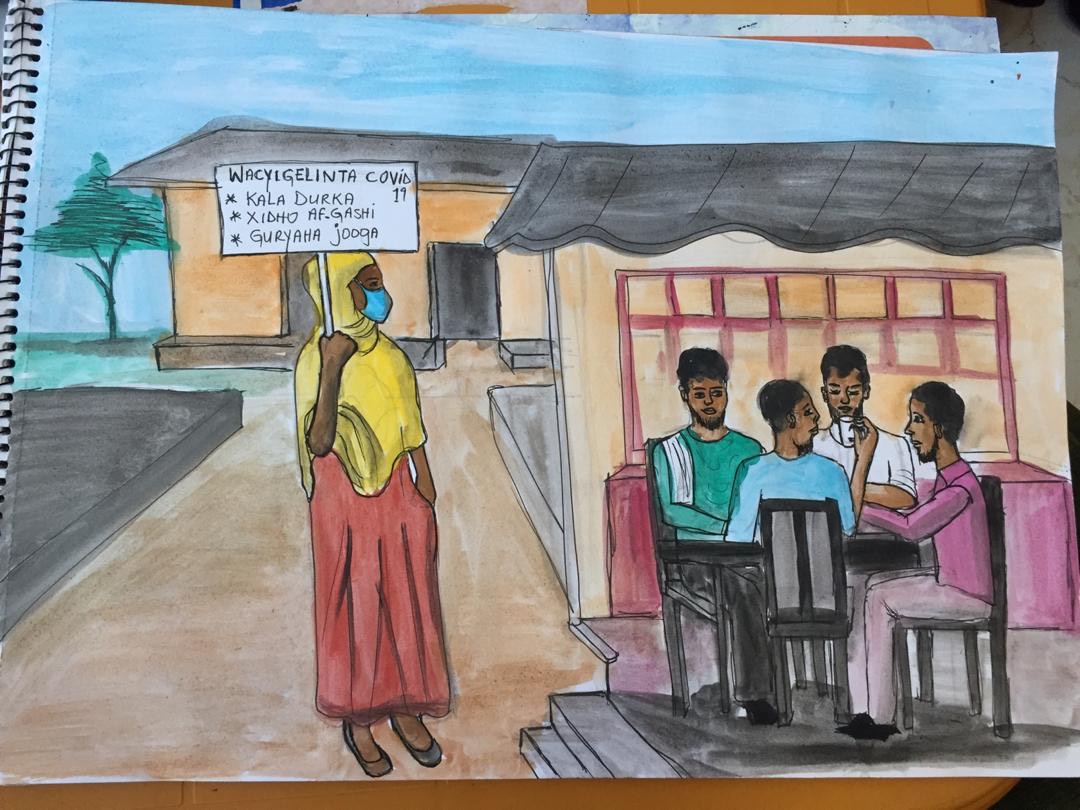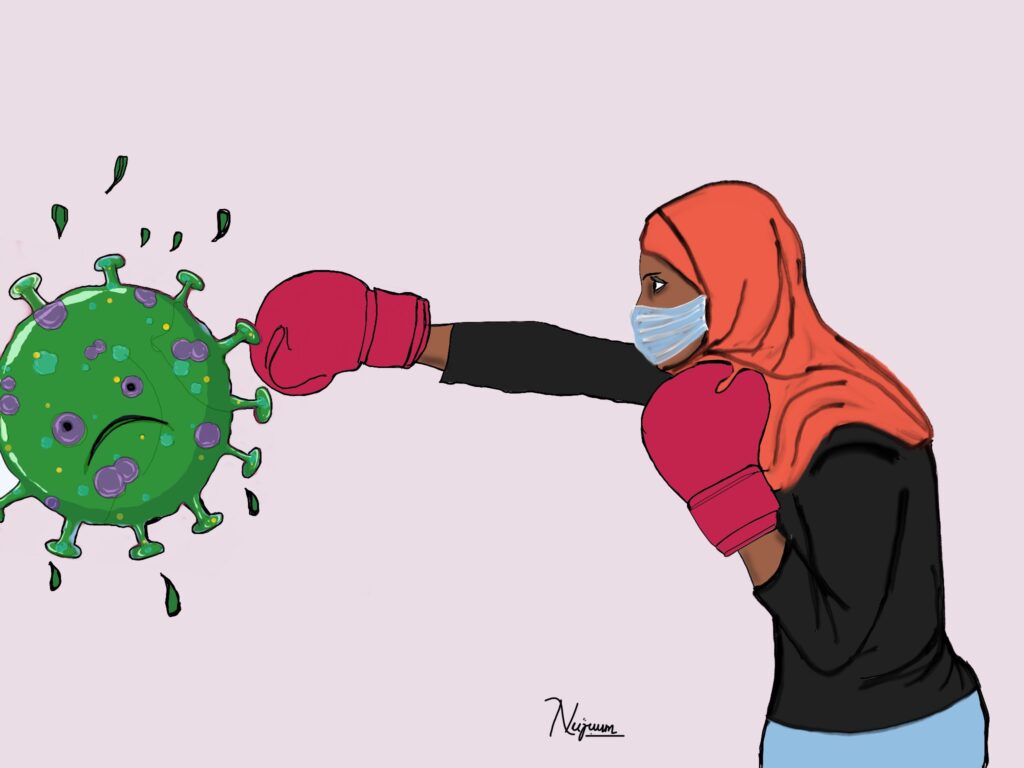ADF STAFF
A broad palette of emotions surged through Najma Hashi when she discovered she had contracted COVID-19 in late April. Sadness, anger, fear and frustration eventually yielded to hope and determination.
One of Somalia’s most prominent young artists, Hashi, who is known as Nujuum, had no idea how she caught the disease caused by the new coronavirus, but she suspected it had to do with the hordes of Somalis living life as usual, not taking the pandemic seriously.
“It is really depressing to see the people behaving the way they are behaving here in Mogadishu,” she told Anadolu Agency in June. “People are really careless about this pandemic. You see the restaurants and places where people meet are still open, friends are hugging, shaking hands and walking around. … You see markets are full of people buying and selling stuff. … You see young people having coffee and sitting very close to each other.

“They are not even thinking about the problem that the disease is causing. … It really disturbs me.”
A former nurse, Hashi had already seen her star rise during Mogadishu’s lockdown.
The new reality of social distancing led to new audiences on social media as Hashi shared drawings, cartoons and paintings with a strong message to follow guidelines. She also used Instagram Live regularly to broadcast art lessons and live creations.
First the BBC’s Africa unit took notice, featuring Hashi in a video to highlight how famous artists are coping with isolating at home and taking advantage of livestreaming.
“I just try to … keep fans entertained and remind them of the good times.”
We spoke to @NaomiCampbell, @nujuumarts, @Nasty_CSA and @muthoniDQ about how they’re connecting with fans via livestreams as they stay home.
📹: @njorogemuigai @PrincessIre pic.twitter.com/hYF9hdt0Sb
— BBC News Africa (@BBCAfrica) April 27, 2020
Then, the European Union Delegation to Somalia, with whom she had previously collaborated, announced an initiative called #ArtistsAgainstCOVID. The project launched June 23 and featured Hashi as its first spotlight artist.
“Somali youth and artists have a crucial role to play in the COVID response,” EU Ambassador to Somalia Nicolas Berlanga-Martinez said in a statement. “The fight is not only a fight against COVID-19, it is also a fight against misinformation, rumors and stigma around the disease.
“With their voice and talent, youth and artists can share crucial information, within their community but also among their fans, to engage with a large audience in response to the crisis. The EU recognizes this potential and seeks to amplify their voices by displaying and supporting their work.”
We launch our #ArtistsAgainstCovid initiative with Najma of @NujuumArts. In this video, she paints a common scene in Mogadishu where many people don’t practice social distancing, one of the primary means of reducing the spread of Covid-19. #KalaDurka #XidhoAfgashi #GuryahaGooga pic.twitter.com/dH465v32xr
— EU Del in Somalia (@EU_in_Somalia) June 23, 2020
Hashi is among Somalia’s COVID-19 survivors. According to the Africa Centres for Disease Control and Prevention, as of July 21, there were 3,135 recorded cases, 93 deaths and 1,464 recoveries, but just 11,900 tests in a country of nearly 16 million people.
Growing up in the crisis-plagued capital colored most of her images and perspectives of Somalia. She saw the ravages of war, drought, displacement and extreme poverty compounded by a lack of education and leadership.

In a country committed to reconstruction, Hashi finds herself in a fight once again.
“Art can inspire people, and I can send a positive message,” she said in a video with the EU in Somalia. “Through my art I try to do as much as possible to communicate with the people who cannot speak or write or read. That’s most people here, but they can understand visually.
“It’s important in this pandemic to give the real information, because there’s a lot of misunderstanding. So through art we give people awareness of how they can stop spreading the disease.”

